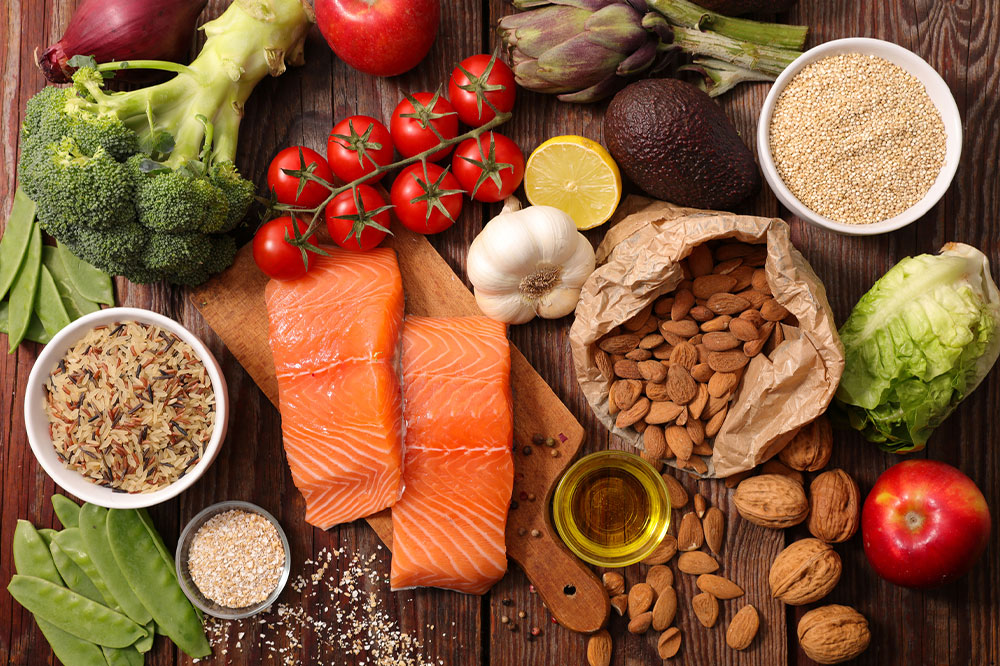Top 10 Nutrient-Rich Superfoods to Boost Your Daily Wellness
Discover the top 10 superfoods that can enhance your daily health and increase vitality. From eggs and garlic to blueberries and dark chocolate, learn how incorporating these nutrient-rich foods into your diet can boost immunity, improve heart health, and support overall well-being. This detailed guide offers practical tips on how to enjoy each superfood and its health benefits, making it easier to build a balanced and nutritious lifestyle that promotes long-term health and energy every day.

Top 10 Nutrient-Rich Superfoods to Boost Your Daily Wellness
Maintaining optimal health and vitality starts with nourishing your body with the right foods. Incorporating superfoods into your daily diet can significantly enhance your immune system, reduce the risk of chronic diseases, and support overall well-being. These superfoods are packed with essential vitamins, minerals, antioxidants, and healthy fats that work synergistically to promote longevity and vitality. Building a balanced diet with these nutrient-dense foods not only elevates your health but also adds variety and flavor to your meals. Here, we explore ten powerful superfoods that are easy to include in your everyday routine, ensuring you stay energized and healthy throughout the year.
1. Eggs
Eggs are one of the most versatile and complete sources of high-quality protein. They contain all nine essential amino acids necessary for muscle repair, hormone production, and other vital functions. Beyond protein, eggs are rich in vitamins such as B12, B2, B5, and fat-soluble vitamins A, D, E, and K. They also provide important minerals like selenium, zinc, and iron. Consuming eggs regularly can aid in muscle development, support brain health, and improve eye health due to their lutein and zeaxanthin content.
Consumption tips: Start your morning with a nutritious breakfast by boiling, scrambling, poaching, or frying eggs. They are easy to prepare and pair well with vegetables or whole-grain bread to make complete meals. Incorporate eggs into salads, sandwiches, or as part of an hearty breakfast to maximize their nutrition benefits.
2. Garlic
Garlic has been valued for its medicinal properties for thousands of years. Scientific studies have shown that garlic can help reduce total cholesterol levels and blood pressure, thereby lowering the risk of cardiovascular diseases. It also enhances immune function by stimulating white blood cells, making it an excellent food to boost immunity, especially during cold and flu season.
Usage suggestions: Incorporate garlic into a variety of dishes such as roasts, stir-fries, sauces, and spreads. Fresh garlic cloves can be minced and added to salads, soups, and casseroles. Roasted garlic has a milder flavor and can be spread on bread or used as a condiment, adding both flavor and health benefits to your meals.
3. Broccoli
Broccoli is a nutritional powerhouse rich in vitamins, minerals, and antioxidants. It contains vitamin C, vitamin K, folate, potassium, and magnesium, which contribute to heart health, bone health, and immune support. Broccoli also contains compounds like sulforaphane, known for its potential anti-cancer properties.
How to enjoy: Add broccoli florets to pasta dishes, salads, stir-fries, or enjoy steamed as a side. Roasting broccoli with a drizzle of olive oil and seasoning enhances its flavor while preserving its nutrients. Incorporating broccoli into your diet regularly can significantly help lower risks associated with chronic illnesses such as cardiovascular disease and certain types of cancer.
4. Almonds
Almonds are among the most nutritious nuts, loaded with healthy monounsaturated fats, dietary fiber, protein, vitamin E, magnesium, and calcium. These nutrients promote heart health, support brain function, and help maintain healthy skin.
Best ways to eat: Snack on raw almonds for a quick energy boost or sprinkle them on oatmeal, yogurt, or salads. Almonds can also be incorporated into baked goods or used to make almond butter. Their portability and versatility make them a convenient superfood choice for daily consumption.
5. Wild Salmon
Wild salmon is renowned for its rich omega-3 fatty acids, which are essential for brain health, reducing inflammation, and supporting cardiovascular function. It also provides significant amounts of iodine, zinc, and vitamin D, vital for hormone regulation, immune response, and bone health.
Preparation tips: Grill, bake, or poach wild salmon for a delicious, nutrient-rich main dish. Add chunks to salads or sandwiches for an extra health boost. Regular intake of wild salmon can promote healthy skin, hair, nails, and strengthen bones due to its vitamin D content.
6. Quinoa
Quinoa is a gluten-free seed that functions as a complete protein source, containing all nine essential amino acids. It is also rich in B-vitamins, dietary fiber, magnesium, manganese, and healthy fats, making it an excellent addition to a balanced diet.
Serving ideas: Use quinoa as a breakfast porridge topped with fruits and nuts, as a side dish in place of rice or couscous, or incorporate into salads and soups. Its nutty flavor and fluffy texture make it a versatile ingredient suitable for various cuisines. Consuming quinoa regularly can support tissue repair, improve digestion, and help sustain energy levels throughout the day.
7. Blueberries
Blueberries are known for their high antioxidant content, particularly flavonoids, which protect cells from oxidative damage. They are a rich source of vitamin C, dietary fiber, and manganese, which support immune function and digestive health.
How to include: Add fresh or frozen blueberries to cereals, smoothies, yogurt, or baked goods. They can also be enjoyed on their own as a healthy snack. Their anti-inflammatory properties can help reduce the risk of chronic diseases such as heart disease, diabetes, and certain cancers.
8. Flaxseeds
Flaxseeds are a rich source of omega-3 fatty acids, particularly alpha-linolenic acid (ALA), along with dietary fiber, lignans, and essential minerals like magnesium and phosphorus. They are known to lower cholesterol levels, support digestive health, and promote brain function.
Usage tips: Add ground flaxseeds to smoothies, cereals, yogurt, or baking recipes. Whole flaxseeds can be used in salads or as a crunchy topping. Incorporating flaxseeds into your diet can help improve your lipid profile and overall cognitive health.
9. Kale
Kale is a dark leafy green vegetable packed with over half of the daily recommended intake of vitamin C. It contains high levels of antioxidants, vitamins A, K, and minerals such as calcium, potassium, and magnesium. Kale's nutrient density helps support immune function, bone health, and detoxification.
Serving suggestions: Prepare kale in stir-fries, soups, or bake it into crispy kale chips for a healthy snack. Including kale in your meals regularly can improve digestion, strengthen bones, and enhance skin health.
10. Dark Chocolate
Rich in flavonoids and antioxidants, dark chocolate can support cardiovascular health by reducing blood pressure and improving circulation. Quality dark chocolate with at least 70% cocoa content is recommended for maximum health benefits.
How to enjoy: Consume a small piece of dark chocolate as a snack or incorporate it into desserts like mousse or brownies. Enjoying dark chocolate in moderation can satisfy sweet cravings while providing health-promoting antioxidants.





